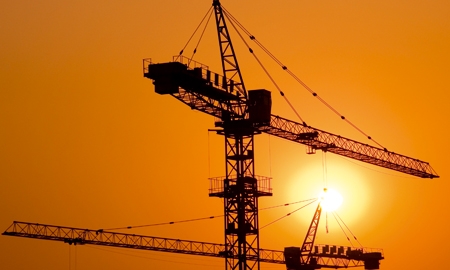Like many emerging markets, Algeria faces numerous challenges in maintaining its social development at par with its rapid economic growth. Although the oil and gas industry has amassed for the country vast riches, reinvesting it back into the nation requires a great deal of planning, management and organisation.
As such, the government is addressing housing shortages, rural-urban migration, and affordability through several agencies, one of which is the Economic Interest Group (GIE in its French initials). This promising project, under the Ministry for Housing and Urban Development, comprises 50 Real Estate Promotion and Management Offices (
OPGIs) located in 48 wilayas, and the National Agency for Housing Improvement and Development (AADL).
| If there are 2.4m new housing units, there have to be support facilities: new schools, universities etc. |
Over the period 2000-2005, the government built more than one million housing units, and a further two million units are due to be finished by 2017. It is the OPGIs who are entrusted with the execution of this programme and with the provision of project management and operational management upon completion. In other words, the 50 OPGIs act as land managers that assign projects – especially in social housing – and land to developers, each in their own respective zone.
Additionally, the GIE is helping to restore old buildings and replace the hundreds of thousands of ramshackle homes with safe, modern ones. In its unifying role, the GIE for its part, according to Mohamend Rehaimia, President and CEO of the OPGI in the Hussein Dey district of Algiers, has the synergy to “reflect on ways to improve management of the national public housing stock.”
OPGI has concentrated mostly on housing for the poorer segments of Algerian society. The offices’ public rental housing units are destined for applicants with limited financial resources and who have not already benefited from state property or public assistance of any kind in the area of housing provision. Nearly one million units of this kind of housing are expected to be completed by the year 2014, a portion of which are reserved for the “reabsorption of vulnerable housing for the slum community,” says Mr Rehaimia.
While OPGI focuses more on rental units, AADL is entrusted with overseeing the hire-purchase formula, or rent-to-own homes. Also geared towards poorer Algerians, the beneficiaries of these price-capped homes must make a down payment and then cover the remainder in ‘easy’ payments at very low interest rates over the course of 20 or 25 years. The government also grants subsidies on the price of the land for the completion of these projects.
A second type of housing the AADL promotes is called promotional-assisted housing, or LPA. Intended for the middle-income segment, LPA is also government funded but the amount of contribution varies according to the buyer’s salary.
All the accompanying infrastructure for new housing is also in demand. Mr Rehaimia says, “If there are 2.4 million new housing units, there have to be support facilities; you need so many schools, universities, etc.”
New universities, sports stadiums and dams, among others, are being put up, but “all of this is enormous and we do not have the tools to support it all,” which is a key reason why many foreign companies have entered the sector.

0 COMMENTS